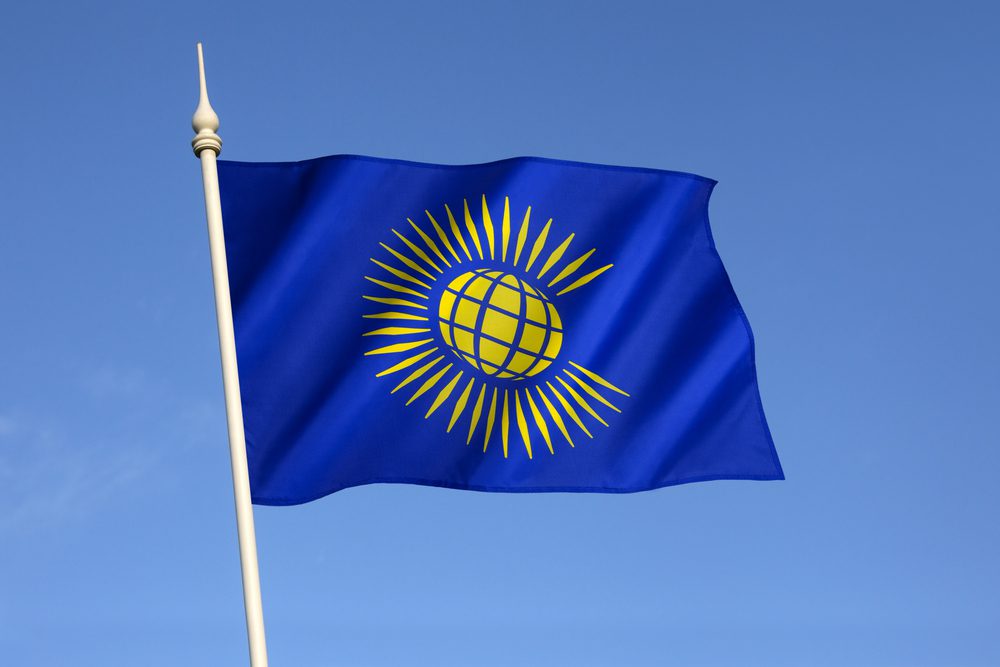
Two African countries that were once French colonies, Togo and Gabon, have now chosen to join the Commonwealth. This is not the first time that states with absolutely no historical ties to the UK have joined this community of countries, which was originally conceived as a link between countries formerly under the colonial control of the British crown.
Mozambique was the first country to join the community in 1995 with no links to the United Kingdom. Rwanda joined in 2009, followed now—thirteen years later—by Togo and Gabon: all predominantly French-speaking countries that also have no historical ties to London.
Fifty-six countries are now members of the Commonwealth, with Queen Elizabeth II at its head.
Togo is a former German colony, which came under French administration at the end of the First World War, when the Treaty of Versailles struck down the German Empire as a colonial power and removed the territories under its control. Rwanda was also a former German colony, given to Belgium for the same reasons. Gabon, on the other hand, was a French colony, part of the former French Equatorial Africa (AEF), which gained its independence in 1960 under General de Gaulle.
Togo’s Foreign Minister, Robert Dussey, justified his country’s membership based on the economic attractiveness of the Commonwealth, which represents a market of 2.5 billion consumers, and by the ‘fancy’ for English shown by the Togolese population.
The attractiveness of the Commonwealth is a reflection of the deficiencies in French policy for Africa, which for several years has been unable to maintain constructive relations with its former colonies, both culturally and economically. As a result, several African countries have come to consider radically changing the direction of their foreign policy from the traditional tutelage of France to that of the UK. Moreover, the UK’s exit from the European Union necessitated the redefinition of African countries’ bilateral relations with London in specific terms that eventually led to a tightening of diplomatic ties.
Togolese political scientist Mohammed Madi Djabakate, interviewed by France 24, believes that French influence in Togo is currently perceived negatively, and that Togo’s entry into the Commonwealth, although not subject to a popular consultation, should be rather well received by the population.
The President of Gabon also believes that he is choosing the “future”—a way of saying that loyalty to France definitely belongs to the past.
HISTORIQUE!
— Ali Bongo Ondimba (@PresidentABO) June 25, 2022
Le #Gabon est officiellement devenu ce 25 juin 2022 membre du @commonwealthsec.
62 ans après l'Indépendance, notre pays s'apprête à ouvrir un nouveau chapitre de son Histoire.
De nombreuses opportunités s'offrent à nous sur le plan économique, diplomatique & culturel. pic.twitter.com/HDcYYyksce
British Prime Minister Boris Johnson believes that the arrival of Togo and Gabon in the ranks of the Commonwealth is proof of the dynamism and attractiveness of the international institution that was gradually built up from the regular conferences organised between British and colonial prime ministers from 1887.
Despite the prime minister’s encouragement, some wonder about the credibility of the Commonwealth and its political contradictions. Membership of the Commonwealth is normally conditional upon compliance with its charter on good governance and democratic values. However, both Togo and Gabon are governed by leaders from local dynasties who have made some dubious arrangements with democracy. Gabon has been ruled by the Bongo family for 55 years. Ali Bongo succeeded his father after his death as head of Gabon and was returned to power in 2016 following an election marred by deadly violence and allegations of fraud. Togo has also been in the hands of the same dynasty for over half a century. General Gnassingbé Eyadema ruled the country from 1967 until his death in 2005, when his son Faure Gnassingbé took power. The dubious conditions of his re-election on four occasions from 2005 to 2020 have been the subject of strong criticism from the local opposition.
So far, no reservations have been made by the Commonwealth or the Queen about these leaders.
